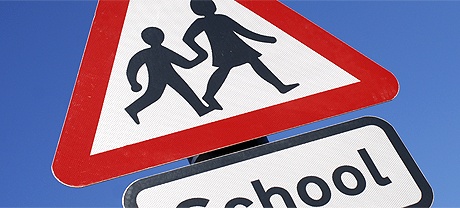Education Scotland has published a new podcast episode that explores how social media scrolling is impacting pupil behaviour, with a particular focus on online misogyny.
In the latest episode of The Learning Conversations, Gillian Hamilton, Chief Executive of Education Scotland, Angela MacDonald, Development Officer for the Mentors in Violence Prevention programme, and Dr Kaitlyn Regehr from University College London, discuss how social media algorithms are amplifying extreme content and normalising harmful ideologies for some young people.
The conversation highlights findings from a recent algorithmic modelling study, led by Dr Regehr, which found a fourfold increase in the level of misogynistic content on the ‘For You’ page of TikTok accounts over just five days on the platform.
Gillian Hamilton said:
“The rapid and vast adoption of social media means there is now a space where people can make anonymous threats against others and share misogynistic views amongst a wide audience.
“Addressing and tackling this type of violence and abuse requires education, transparency and coordinated action.”
During the episode, the trio discuss how a healthy digital approach to education is needed to support young people, schools, and the community at large.
Citing her research, Dr Regehr says it is also essential to “champion the voices of young people themselves” and says Education Scotland’s Mentors in Violence Prevention peer mentoring programme is a great example of this.
Last month, as part of the MVP programme, the ‘Challenging Online Misogyny’ resource was launched which aims to tackle online misogyny and abuse.
The two-part lesson is delivered by MVP mentors in schools and offers a safe space to discuss gender-related pressures among young people, the scale of online misogyny, and strategies to recognise and challenge discriminatory behaviours.
It was shaped by the MVP team in collaboration with Dr Regehr.
Dr Regehr said:
“As young people micro dose on topics like self-harm, or extremism, to them, it feels like entertainment.
“Harmful views and tropes are now becoming normalised among young people.
“Online consumption is impacting young people’s offline behaviours, as we see these ideologies moving off screens and into school yards.
“I really think this is like Big Tobacco decades ago.
“At some point there will be enough persuasive research that the public will demand that policymakers start prioritising young people’s well-being over profit.
“But unfortunately, we’re just not quite there yet.”
She said what she is trying to push at the moment is a need to think more critically about what we are consuming, just in the same way we consume food.
“Yes, it’s okay to consume a couple of problematic videos, just like sugar and junk food, but if that is 50 per cent of what you’re consuming – which is what our research is pointing towards – that’s problematic.
“That’s a really unhealthy diet.
“I think if we start speaking in terms of diet, which is something that most parents and children understand, we can start to break down the barriers around technological confusion and make it a lot simpler for people to engage with.”
More than 190 schools in Scotland are now part of the MVP programme.
MVP schools can find the new ‘Challenging Online Misogyny’ resource on the MVP website.
For schools that would like more information regarding the MVP programme and access to all of its resources, contact the MVP team.
Listen to the full podcast here



